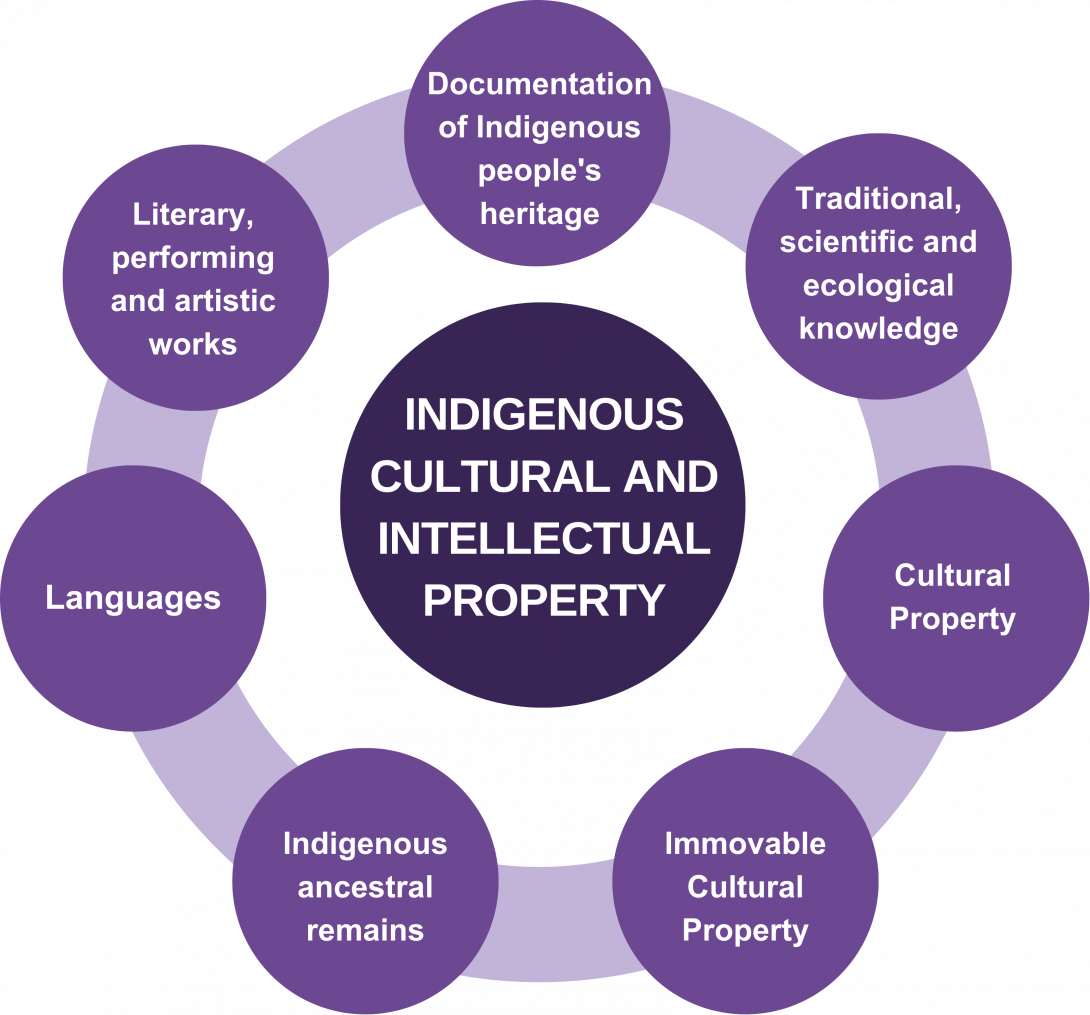Due to scheduled maintenance, the National Library’s online services will be unavailable between 8pm Friday 29 November and 11am Saturday 30 November. Find out more.
The National Library has custodianship over rich archival, published, pictorial and oral history collections documenting the experiences, culture and language of First Nations peoples – the First Australians – and recognises the rights of First Nations people to be seen as primary guardians, interpreters and decision-makers of their heritage.
The National Library has developed an Indigenous Cultural and Intellectual Property (ICIP) Protocol (pdf,534KB) to guide all parties in the access and use of ICIP in its collections.
On this page
- What is Indigenous Cultural and Intellectual Property
- Identifying Indigenous Cultural and Intellectual Property
- Accessing and using Indigenous Cultural and Intellectual Property material
- Copying and publishing Indigenous and Intellectual Property material
What is Indigenous Cultural and Intellectual Property?
Indigenous Cultural and Intellectual Property or ICIP refers to the rights of Australia's First Nations (Aboriginal and Torres Strait Islander) peoples to their heritage.
ICIP incorporates:
- traditional knowledge
- traditional cultural expression
- performances
- cultural objects
- human remains and tissues,
- the secret and sacred material and information, and
- documentation of First Nations peoples' heritage in all forms of media.
The Library notes the Scoping Study on Stand-alone Legislation for Indigenous Knowledge recently undertaken by IP Australia and the Government's commitment to recognising and protecting First Nations traditional knowledge and cultural expressions as outlined in the National Cultural Policy.

Text version of this diagram
'Indigenous Heritage, Indigenous Cultural & Intellectual Property' sits in the middle circle with arrows pointing to 7 surrounding circles, starting at the top and moving clockwise: Documentation of Indigenous Heritage; Traditional scientific & ecological knowledge; Cultural property; Immovable cultural property; Ancestral remains; Languages; Literary performing & artistic works.
ICIP is also commonly referred to as "cultural heritage", "traditional knowledge" or "traditional cultural expression".
Identifying Indigenous Cultural and Intellectual Property
Material in the collections is considered to contain ICIP where the material:
- Features a First Nations person or First Nations people depicting or describing ICIP, whether that is in relation to their cultural heritage, their connection to land and waters or waterways, or any other element of ICIP
- Does not feature a First Nations person or First Nations people, but the images, stories, knowledge or Country depicted or described relates to ICIP
- Contains First Nations languages or word lists
- Refers predominantly to the history of First Nations people in Australia, including images, recordings, text and fictionalised accounts of such histories
- Contains, depicts or describes First Nations ceremonies, dance, song or other practices (whether performed by First Nations or non-Indigenous persons)
- Is a cultural object, whether created by First Nations or non-Indigenous people.
Accessing and using Indigenous Cultural and Intellectual Property material
The Library encourages use of its collection items in accordance with the Australian Indigenous Cultural and Intellectual Property Protocol (pdf,534KB) and in line with advice received from ICIP rights holders.
In addition to access conditions set by copyright and other rights holders (who may or may not be an ICIP holder), access to collection items containing ICIP may also be determined by the wishes of an ICIP holder(s) or the need for further consultation with relevant First Nations communities.
Internal or external researchers are made aware of the obligation to acknowledge ICIP incorporated in the relevant material, and to attribute the relevant ICIP rights-holders or the First Nations community, where known.
This may apply to published or unpublished collection items.
Copying and publishing Indigenous Cultural and Intellectual Property material
Requesting copies of Indigenous Cultural and Intellectual Property material
Copies of collection material containing ICIP can be made via the Copies Direct service. Please be aware that, in keeping with the Library’s ICIP Protocol, the approval of ICIP rights holders may be required to reproduce some material.
Providing us with as much information as you can about the context in which you require the copies will help us to provide you with access to material efficiently and to advise you on any approvals which may be required.
This applies to personal copies and document supply for libraries.
Intention to Publish material containing Indigenous Cultural and Intellectual Property
While it may be permissible to access, view or copy ICIP material – and items may be available through the catalogue, eResources or Trove – further approvals might be required from ICIP rights holders to reproduce the material and publish it.
In such cases you will be advised to seek consent from ICIP rights holders before your request to publish ICIP material can be approved.
Where the item you wish to publish contains ICIP, please submit an Intention to Publish declaration as normal.
Any information you can provide about the context in which you intend to publish the material and any prior engagement you have had with ICIP rights holders will help us to respond to you efficiently.
If you already have approvals from ICIP rights holders, please attach them to your request.
If you do not already have consent from ICIP rights holders – or the ICIP rights holder is unknown – the Library will assess your request and provide advice.
The Library will assess each item individually and will be in touch to advise on the outcome. These are often complex enquiries and may take some time to resolve.